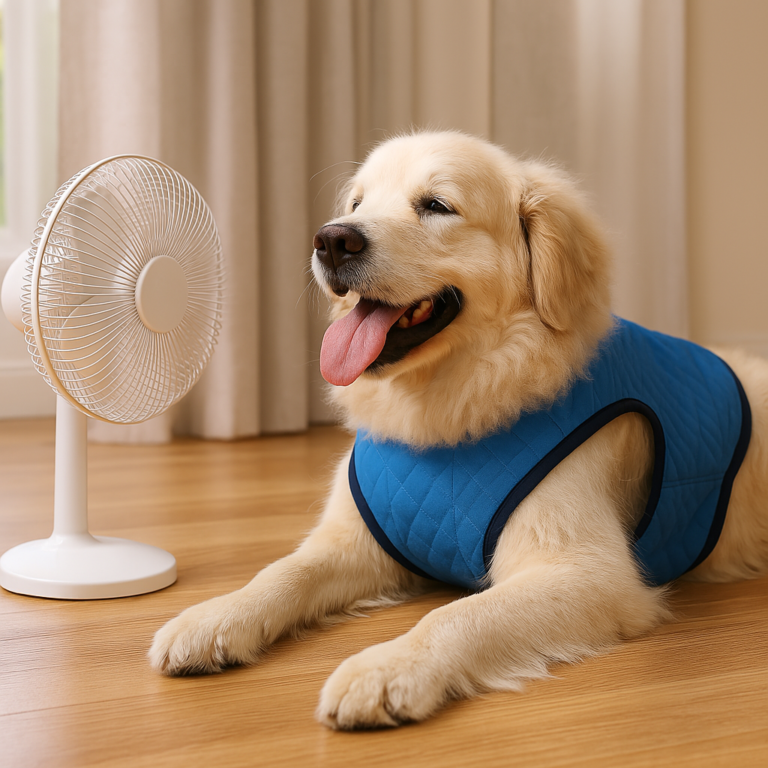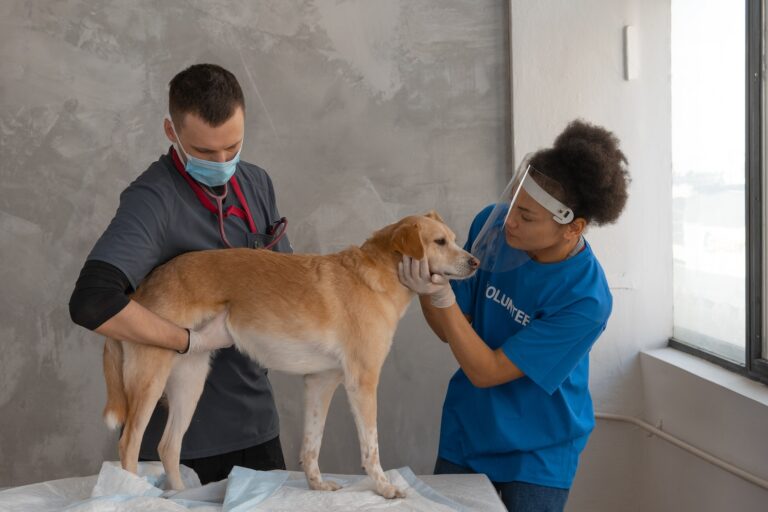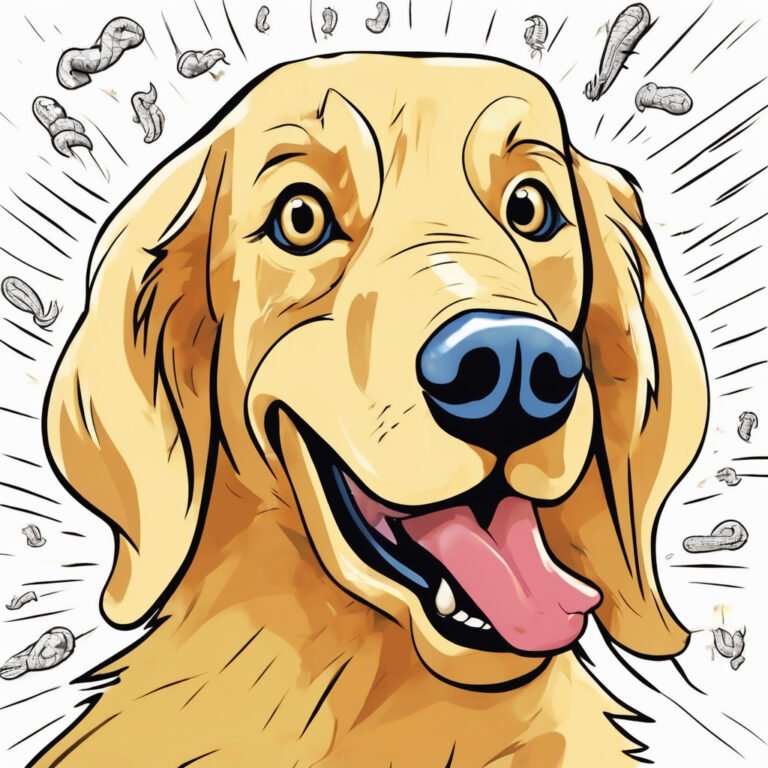Is your dog coughing, sneezing, or showing signs of difficulty breathing? These symptoms might signal a canine respiratory infection. As a concerned pet parent, understanding the causes, symptoms, and treatments for dog respiratory problems is crucial for your furry friend’s health and recovery.
What Are Canine Respiratory Infections?
Canine respiratory infections affect your dog’s breathing system, including the nose, throat, and lungs. Often called “kennel cough” or “dog flu,” these infections spread rapidly among dogs, especially in places where many dogs gather, like boarding facilities, dog parks, and grooming salons.
The most common types of dog respiratory infections include:
- Canine Infectious Respiratory Disease Complex (CIRDC) – A collection of highly contagious respiratory pathogens
- Kennel cough (Bordetella bronchiseptica) – The most frequently diagnosed dog cough infection
- Canine influenza (dog flu) – A highly contagious viral infection
- Canine parainfluenza virus – A common contributor to kennel cough
- Canine adenovirus type 2 – Causes respiratory tract infections in dogs
- Canine distemper virus – A serious viral disease affecting multiple body systems

Common Symptoms of Dog Respiratory Infections
Recognizing the signs of respiratory infection in dogs early helps ensure prompt treatment. Watch for these common symptoms:
- Persistent, dry hacking cough (often described as a “goose honk”)
- Sneezing and nasal discharge
- Difficulty breathing or rapid breathing
- Lethargy and reduced activity
- Loss of appetite
- Mild fever
- Gagging or retching, especially after coughing
- Eye discharge
Most cases of kennel cough and mild respiratory infections cause symptoms for 1-2 weeks. However, puppies, senior dogs, and those with compromised immune systems may develop more severe symptoms, including pneumonia.
How Canine Respiratory Infections Spread
Understanding how dogs catch respiratory infections helps prevent future occurrences. These infections spread through:
- Direct contact with infected dogs
- Airborne transmission through coughing and sneezing
- Contaminated surfaces like water bowls, toys, and kennel surfaces
- Human handling (people can transfer pathogens between dogs)
The incubation period for most canine respiratory infections ranges from 2-14 days, meaning your dog could be exposed and not show symptoms for up to two weeks.
Diagnosing Dog Respiratory Infections
If you suspect your dog has a respiratory infection, veterinary attention is important. Your vet will likely:
- Perform a physical examination
- Listen to your dog’s breathing with a stethoscope
- Ask about recent exposure to other dogs
- Consider your dog’s vaccination history
- Possibly recommend diagnostic tests like:
- Nasal or throat swabs
- Blood tests
- X-rays (for severe cases or to check for pneumonia)
- PCR testing to identify specific pathogens
Treatment Options for Canine Respiratory Infections
Most mild canine respiratory infections clear up with supportive care, but proper treatment speeds recovery and prevents complications. Treatment options include:
Home Care for Mild Cases
- Rest: Limit exercise and excitement to reduce coughing episodes
- Humidity: Use a humidifier or steamy bathroom to ease breathing
- Plenty of water: Keep your dog well-hydrated
- Honey: A teaspoon of honey (for medium to large dogs) can soothe throat irritation
- Proper nutrition: Encourage eating with warm, aromatic foods
Veterinary Treatments
- Antibiotics: For bacterial infections or secondary bacterial complications
- Cough suppressants: To reduce coughing and allow rest
- Anti-inflammatory medications: To reduce airway inflammation
- Bronchodilators: To open airways in severe cases
- Fluid therapy: For dehydrated dogs
- Oxygen therapy: For dogs with serious breathing difficulties
When to seek emergency care: If your dog shows blue gums, severe difficulty breathing, refuses to eat or drink for more than 24 hours, or has a high fever, seek immediate veterinary care.
Prevention of Dog Respiratory Infections
Preventing respiratory infections keeps your dog healthy and helps protect other dogs in your community. Key prevention strategies include:
Vaccination
Vaccines are available for several common respiratory pathogens:
- Bordetella vaccine: Protects against kennel cough
- Canine influenza vaccine: Guards against dog flu
- DHPP vaccine: Includes protection against parainfluenza and adenovirus
- Distemper vaccine: Prevents this serious respiratory disease
Talk to your veterinarian about which vaccines are appropriate for your dog based on their lifestyle and risk factors.
Good Hygiene Practices
- Regularly clean and disinfect your dog’s toys, bedding, and food/water bowls
- Wash your hands after handling other dogs before touching your own
- Avoid sharing water bowls at dog parks
- Keep your home well-ventilated
Limiting Exposure During Outbreaks
- Temporarily avoid dog parks, boarding facilities, and grooming salons during local outbreaks
- Ask about sanitation protocols before boarding your dog
- Keep sick dogs isolated from healthy ones
Natural Remedies for Supporting Respiratory Health
While not replacements for veterinary care, these natural approaches may support your dog’s respiratory system:
- Steam therapy: Spending 10-15 minutes in a steamy bathroom can loosen mucus
- Coconut oil: One teaspoon per 20 pounds of body weight may help with inflammation
- Vitamin C: Some vets recommend supplementation during infection (always consult your vet first)
- Echinacea: May help boost immune function
Important: Always consult your veterinarian before trying any natural remedies or supplements.
Risk Factors for Severe Canine Respiratory Disease
Some dogs are more vulnerable to serious complications from respiratory infections:
- Puppies with undeveloped immune systems
- Senior dogs (over 7 years old)
- Brachycephalic breeds (pugs, bulldogs, Boston terriers)
- Dogs with pre-existing respiratory conditions
- Immunocompromised dogs
- Unvaccinated dogs
These high-risk groups should receive prompt veterinary care at the first sign of respiratory symptoms.
When Can Dogs Return to Normal Activities?
After a respiratory infection, follow these guidelines:
- Wait until your dog has been symptom-free for at least 7-10 days before returning to dog parks or daycare
- Complete all prescribed medications, even if symptoms improve
- Return to exercise gradually, watching for any breathing difficulty
- Follow your veterinarian’s specific recommendations
Canine Respiratory Infections vs. Other Health Conditions
Some health conditions can mimic the symptoms of respiratory infections:
- Congestive heart failure: Can cause coughing, especially at night or after exercise
- Collapsing trachea: Common in small breeds, causes a honking cough
- Allergies: May cause sneezing and nasal discharge
- Foreign objects: Items stuck in the throat or nasal passages can cause coughing or sneezing
- Lung parasites:These cann cause coughing and breathing difficulties
Proper diagnosis is essential for effective treatment.
Frequently Asked Questions About Dog Respiratory Infections
Is kennel cough contagious to humans?
While rare, some pathogens like Bordetella bronchiseptica can occasionally infect humans, particularly those with compromised immune systems. Practice good hygiene when caring for a sick dog.
How long is a dog contagious with respiratory infection?
Most dogs remain contagious for 7-14 days after symptoms appear. Some may shed the virus for longer periods, which is why keeping them isolated until fully recovered is important.
Can dogs get respiratory infections more than once?
Yes. Like humans colds, dogs can contract different strains of respiratory pathogens or become reinfected with the same pathogen after immunity wanes.
Does my indoor dog need respiratory vaccines?
Even dogs that spend most of their time indoors benefit from core respiratory vaccines. Discuss your dog’s specific risk factors with your veterinarian.
How can I tell if my dog’s cough is serious?
Seek veterinary care if the cough persists longer than a week, worsens significantly, is accompanied by difficulty breathing, lethargy, or if your dog stops eating or drinking.
Conclusion
Canine respiratory infections are common but manageable with proper care and treatment. By recognizing the symptoms early, seeking appropriate veterinary care, and following prevention strategies, you can help your dog recover quickly and reduce the risk of future infections.
Remember that while most cases resolve with minimal treatment, respiratory symptoms should never be ignored, particularly in high-risk dogs. When in doubt, consult your veterinarian for guidance specific to your dog’s health needs.
Your dog’s respiratory health is an essential component of their overall wellbeing. By staying informed and proactive, you’re taking important steps to keep your furry family member breathing easy for years to come.








